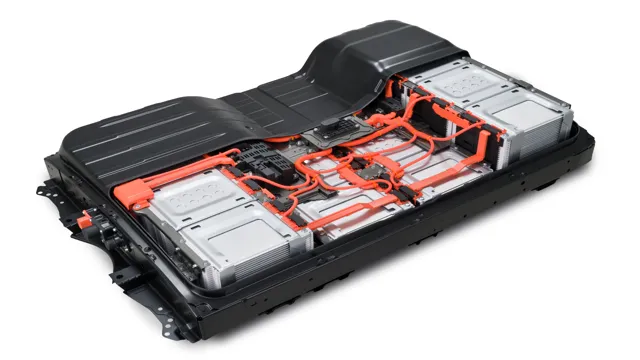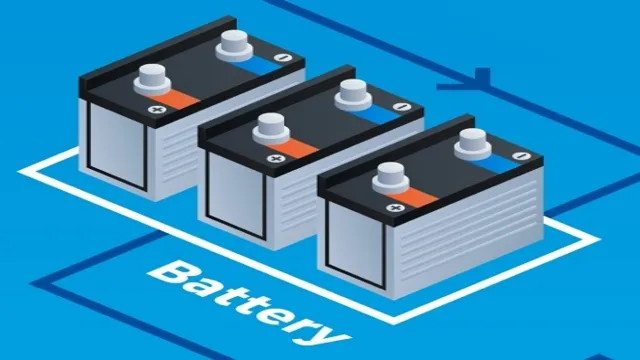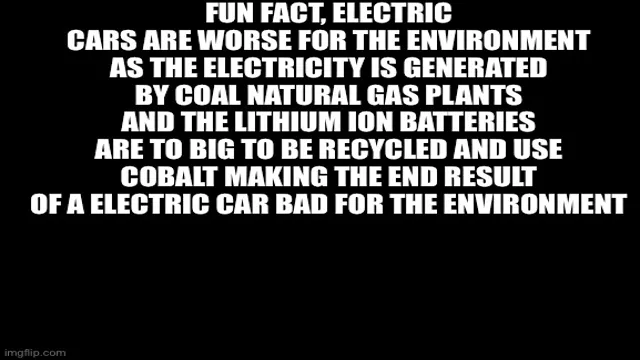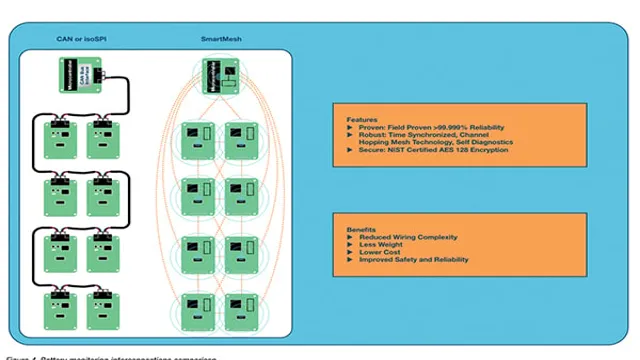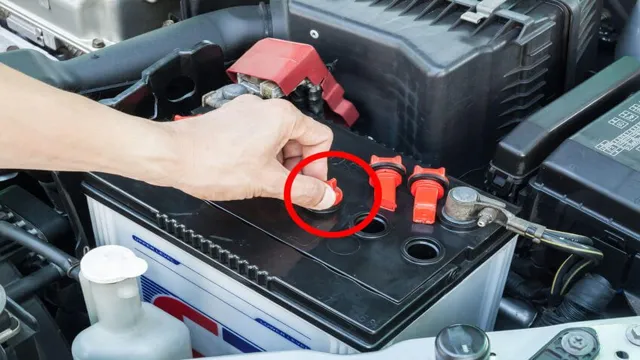Power Up Your Ride: The Ultimate Guide to Electric Car Batteries
Electric cars are not just a fad. They are here to stay, and they are becoming increasingly popular. However, there has been one major concern that has been keeping potential buyers from making the switch to electric cars: battery life.
But that is about to change. A revolution in battery technology is underway, and it is set to change the game for electric cars. The current state of battery technology has its limitations.
Electric cars can only travel a certain distance before needing a recharge, and the recharging process takes longer than filling up a traditional gas tank. The batteries are also heavy, which reduces the car’s overall efficiency. But things are starting to change.
New battery technologies are being developed that promise to increase the range of electric cars. These new batteries are lighter, smaller, and more efficient than their predecessors. They can be recharged quickly, and they can hold more energy than older batteries.
This means that electric cars will soon be able to drive farther on a single charge, and recharging them will be faster and more convenient. The revolution of batteries in electric cars is also set to make electric cars more affordable. The cost of batteries has been a major factor in the high price of electric cars.
However, as new technologies are developed, the production costs of batteries are expected to drop. This will lead to a reduction in the cost of electric cars and make them more accessible to the average consumer. In conclusion, the revolution of batteries in electric cars is an exciting development.
The Importance of Efficient Batteries
With the rising need for cleaner and more sustainable modes of transportation, electric cars have come to the forefront of our attention. However, one major hurdle that still needs to be overcome is the need for more efficient batteries. As the heartbeat of the electric vehicle, batteries need to be able to store more energy, provide longer range, and have faster recharging times.
The importance of efficient batteries cannot be overstated as they are the key to making electric cars more accessible and appealing to the masses. While advancements are being made in battery technology, the batteries that are currently available may not be efficient enough for widespread adoption. As we continue to push for a greener future, it is imperative that we invest in research and development to improve battery efficiency and make electric cars a more viable option for the average consumer.
Long-Lasting Batteries: A Game-Changer in Electric Cars?
Electric cars have been touted as the future of transportation due to their eco-friendliness and low cost of operation. However, the lack of efficient batteries has often been cited as one of the main drawbacks of EVs. Traditional lithium-ion batteries, which are commonly used in electric cars, have limited range and take a long time to recharge.
This has made it challenging for EVs to compete with their gasoline-powered counterparts, which offer longer range and can be refueled quickly. However, recent advancements in battery technology have given rise to a new generation of batteries that promise to be more efficient and long-lasting. With the help of these game-changing batteries, electric cars could soon become the norm rather than the exception on our roads.
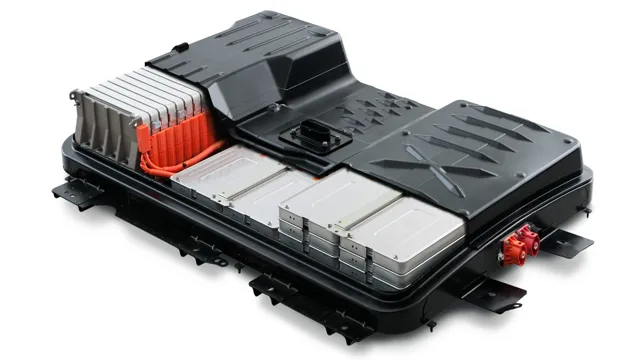
Why are Lithium-Ion Batteries Popular in Electric Cars?
Lithium-ion batteries have become the go-to choice for electric cars due to their efficiency. With the increasing need for sustainability and the push towards clean energy, electric vehicles have emerged as a viable alternative to traditional gas-powered cars. However, electric cars require powerful and long-lasting batteries, which is where lithium-ion comes in.
These batteries offer a high density of electrical energy, meaning they are capable of storing a lot of energy in a small package. Moreover, lithium-ion is lightweight, durable, and has a low discharge rate, allowing it to hold its charge for extended periods. This makes them ideal for electric vehicles, as they can offer the necessary range and power without adding unnecessary weight to the car.
Ultimately, this not only makes electric cars more efficient but also more practical for everyday use.
The Future of Batteries in Electric Cars
Batteries are undoubtedly the lifeline of any electric car, and their development is crucial in determining the future of electric vehicles. Today, the battery technology powering most electric cars is lithium-ion, which comes with its own set of drawbacks, such as limited range, high cost, and slow charging times. However, the future looks bright with the emergence of various advanced battery technologies such as solid-state, lithium-sulfur, and flow batteries.
These battery technologies boast higher energy densities, longer life cycles, faster charging times, and lower costs, which could bring electric cars on par with conventional gasoline vehicles. The advancements in battery technology also bring hope for the development of electric trucks, buses, and even airplanes. With major companies like Tesla leading the way, it seems that the future of electric vehicles lies in the hands of battery technology.
What are Solid-State Batteries?
Solid-state batteries in electric cars. Solid-state batteries are an emerging technology that has the potential to revolutionize the way we power electric cars. Unlike traditional lithium-ion batteries, which use a liquid electrolyte to transport ions between the electrodes, solid-state batteries rely on a solid-state electrolyte.
This allows them to offer a number of advantages over their liquid counterparts, including greater energy density, improved safety, and faster charging times. Solid-state batteries are still in the development stage, but they are expected to play an increasingly important role in the future of electric cars, as they offer the potential for greater range and longer-lasting batteries, which will be important for the growth of electric vehicles in the years to come.
How Will Quantum Computing Affect Electric Car Batteries?
As quantum computing continues to evolve, it has the potential to revolutionize the way we think about and approach electric car battery technology. One area where quantum computing could have a particularly significant impact is in the development of new materials that are more efficient and durable than traditional options. With the ability to perform complex calculations and simulations at an unprecedented level of accuracy and speed, quantum computers could help researchers identify and optimize the ideal materials for use in electric car batteries.
This, in turn, could lead to longer-lasting and more powerful batteries that allow electric vehicles to travel further on a single charge. In short, quantum computing may be the key to unlocking the full potential of electric car technology, ultimately leading to a more sustainable and environmentally-friendly future for all of us.
What are the Advancements in Battery Recycling?
As the world moves towards a more sustainable future, electric vehicles have become increasingly popular. With this increase comes the need to properly recycle the batteries that power them. Fortunately, in recent years, there have been significant advancements in battery recycling technology.
One exciting development is the use of hydrometallurgical methods, which allow for a higher rate of recovery of valuable metals, such as cobalt and lithium, from used batteries. This not only reduces the environmental impact of discarding batteries but also helps to mitigate the demand for new raw materials. Additionally, there are companies working on creating closed-loop recycling systems, in which all materials from a battery are reused in the manufacturing of a new one.
While it is still early days for these systems, the potential to reduce the need for mining and decrease waste is significant. These advancements in battery recycling are vital for the future of electric vehicles and the sustainability of the planet.
The Environmental Impact of Batteries in Electric Cars
Batteries are the backbone of electric cars, and as such, they play a crucial role in determining their environmental impact. While electric cars are better for the environment in terms of emissions than traditional cars, the production and disposal of their batteries have significant environmental costs. The manufacturing process of electric car batteries requires large amounts of energy, raising concerns about the carbon footprint created during their production.
Furthermore, the disposal of batteries poses a significant challenge, as they contain toxic materials such as lead and cadmium that can harm the environment. As such, it is important for manufacturers and consumers to consider the environmental impact of batteries when producing and using electric cars. While there is no denying the benefits of electric cars, it is essential to address the environmental impact of batteries and find solutions to mitigate their negative effects, both for the present and future generations.
How Do Electric Car Batteries Affect the Environment?
Electric car batteries have become increasingly popular in recent years, partly due to the heightened environmental concern around the world. However, despite their eco-friendliness claim, electric car batteries have an undeniable impact on the environment. While most of these batteries are recyclable, a considerable amount of them ends up in landfills or incinerators, which causes harmful chemicals to leak into the ground, air, and water.
This environmental pollution has an adverse effect on wildlife, plants, and ecosystems. Additionally, the lithium used in most electric car batteries is mined, which has a devastating impact on the landscape, wildlife, and indigenous communities. However, compared to conventional cars, electric cars are still significantly less harmful to the environment, given they produce less greenhouse gases and other pollutants.
In conclusion, although electric car batteries have a negative impact on the environment, their overall impact is still less negative than gasoline-fueled cars.
What are the Sustainable Alternatives for Electric Car Batteries?
Electric car batteries have revolutionized the way we think about transportation, but they also have an environmental impact that we can’t ignore. The process of extracting and refining the raw materials for battery production can contribute to deforestation, water pollution, and other negative environmental effects. Additionally, the way we dispose of these batteries can cause harm if not done correctly.
Fortunately, there are sustainable alternatives for electric car batteries that can help mitigate these issues. One approach is to use recycled materials in battery production, reducing the need for virgin materials. Another option is to explore alternative battery chemistries that are less harmful to the environment and have better performance.
By considering these sustainable alternatives, we can continue to enjoy the benefits of electric cars without sacrificing the health of our planet.
Final Thoughts: Empower Your Electric Car with the Right Battery
Batteries are the lifeblood of electric cars, and choosing the right one can make all the difference in terms of performance and reliability. When shopping for a battery, it’s important to consider factors such as capacity, range, and charging time, as well as the overall quality and reputation of the manufacturer. While there are many different types of batteries on the market, most electric cars today are powered by lithium-ion batteries, which offer high energy density and long-lasting performance.
However, not all lithium-ion batteries are created equal, and it’s important to choose a reputable brand that uses quality materials and has a track record of producing reliable, long-lasting batteries. By choosing the right battery for your electric car, you can ensure that it performs at its best and that you get the most out of your investment. So whether you’re a new EV owner or a seasoned pro, be sure to do your research and choose a battery that meets your specific needs and requirements.
Conclusion
In conclusion, batteries are the heart and soul of an electric car. Without these little powerhouses, electric cars would simply be a pipe dream. But thanks to advancements in battery technology, these cars are becoming more efficient and practical by the day.
And with a little spark of innovation, who knows where the future of electric cars will take us? One thing’s for sure though – it won’t be a dead end.”
FAQs
How long do electric car batteries last?
The lifespan of electric car batteries varies depending on factors such as the model of the car, driving style, and climate. Generally, they can last anywhere from 5 to 15 years.
Can electric car batteries be recycled?
Yes, electric car batteries can and should be recycled to reduce waste and recover valuable materials such as lithium, cobalt, and nickel.
How do I know when to replace my electric car battery?
Most electric cars have a battery management system that monitors the health of the battery. If the system detects significant degradation, it will trigger a warning or indicate that the battery needs to be replaced.
Can I upgrade the battery in my electric car?
In some cases, it may be possible to upgrade the battery in an electric car to increase its range or performance. However, this can be expensive and may not be available for all models. It’s best to consult with the car manufacturer or a specialized service provider.
